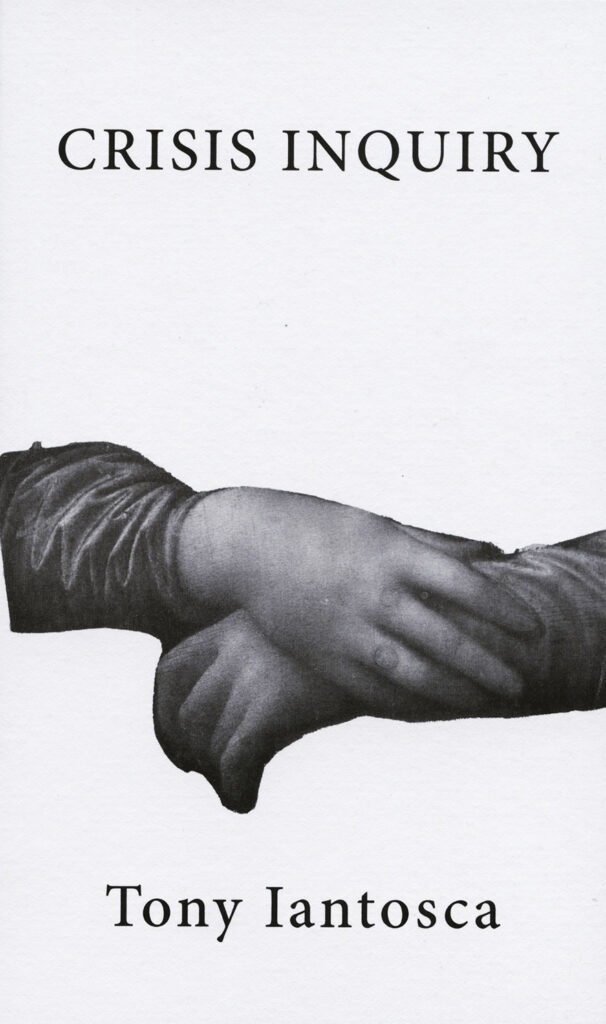With every read i've given of Iantosca's writing it has changed me in my favorite way. Here is the most precise access to everything that dehumanizes the human, and he delivers them to us so unromanticized, so decluttered that it almost shocks the mind to realize just how commonplace our crises have become, how every day some people talk like the world is their spreadsheet and the harsh truth that if we don't get it right this time then we're really fucked. Yet Crisis Inquiry still manages to be beautiful and playful even with its sharp critical edge, at each turn acknowledging and questioning what poetry can and can't do, what speaking can and can't do, to mitigate or mediate our earthly roles. Both winking and sincere, this book is for people interested in the materiality of language, in surveillance and its interferences in the formation of the self, a philosophy of the present, of friendship and bodies and those of you who already know the heart's bankrupt registry is all algorithmic dream and legible document. You know who you are.
Anna Gurton-Wachter
Crisis Inquiry, by Tony Iontosca, is, in fact, the shit. In this long poem made of short-lined poems — yes, that’s a structure, one Iontosca deftly wields at varying tempos to create space and movement for multiple arcs of elaboration — the deadpan comes back to life not as zombie but as levitating knife-thrower refusing to participate in compartmentalization’s acrid “universal” flow. The consciousness at work here is always inside the contours of what’s seen and felt, while nonetheless outside dismantling the intangibles we too deferentially call things like “forces” and “dynamics”. No haphazard assignations of fatality allowed herein, where severity has a blanket, words form currents that energize the bones, the air becomes a kind of reggae, and rock throwing exposes the masked and the hidden.
Anselm Berrigan
Praise for Previous Work
Each of Tony Iantosca’s brilliant poems unveils an unresolved crisis between head and heart. In a world of missed opportunities, there’s no time like the present to move forward.Iantosca takes us one step closer to the rapture, and beyond.
Lewis Warsh
[Iantosca’s] lines are built on the brain’s architecture, if the brain were a wave on the ocean, endlessly disappearing into itself, finding loose change in its pocket. Follow the rhythms of these poems. They are your “tomorrow babies.” They’re not gonna let you forget how life could be.
Lisa Rogal
